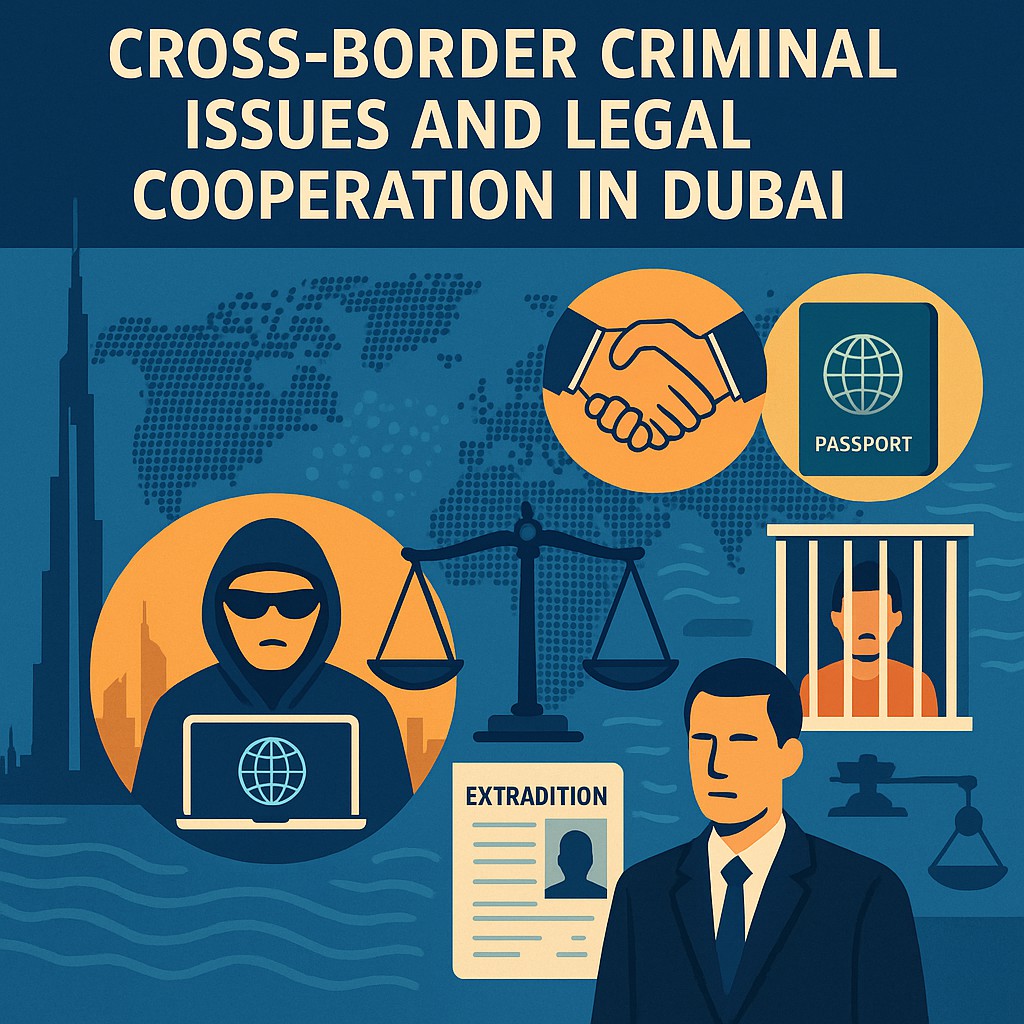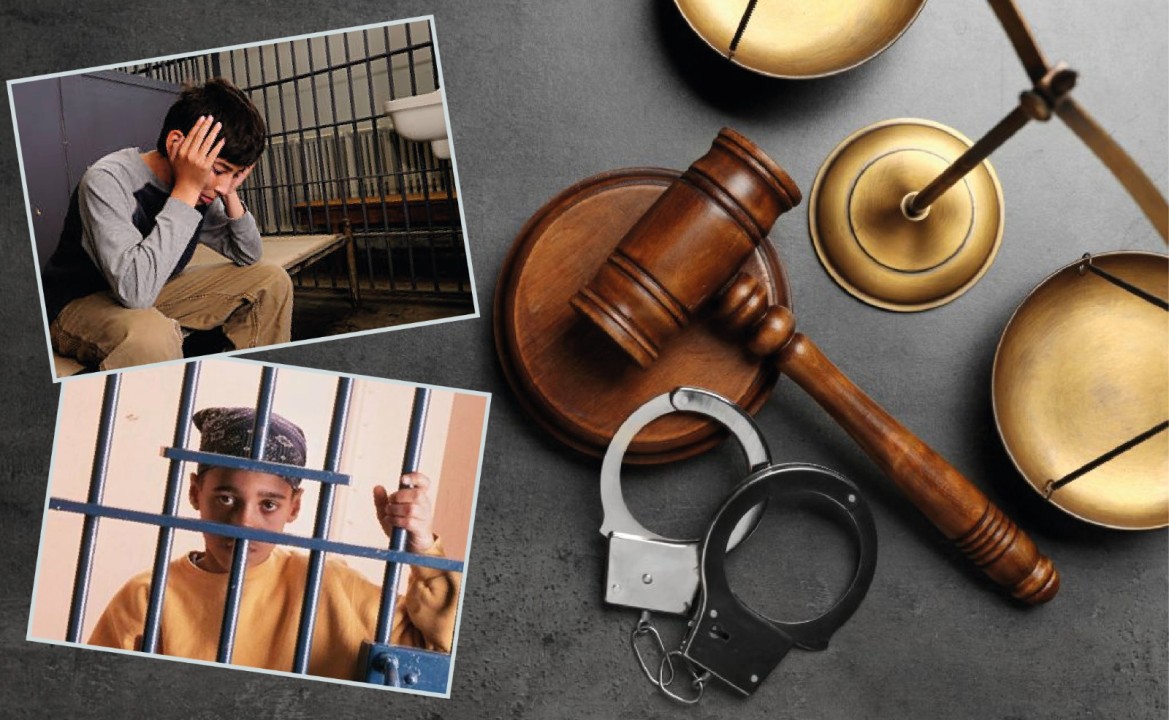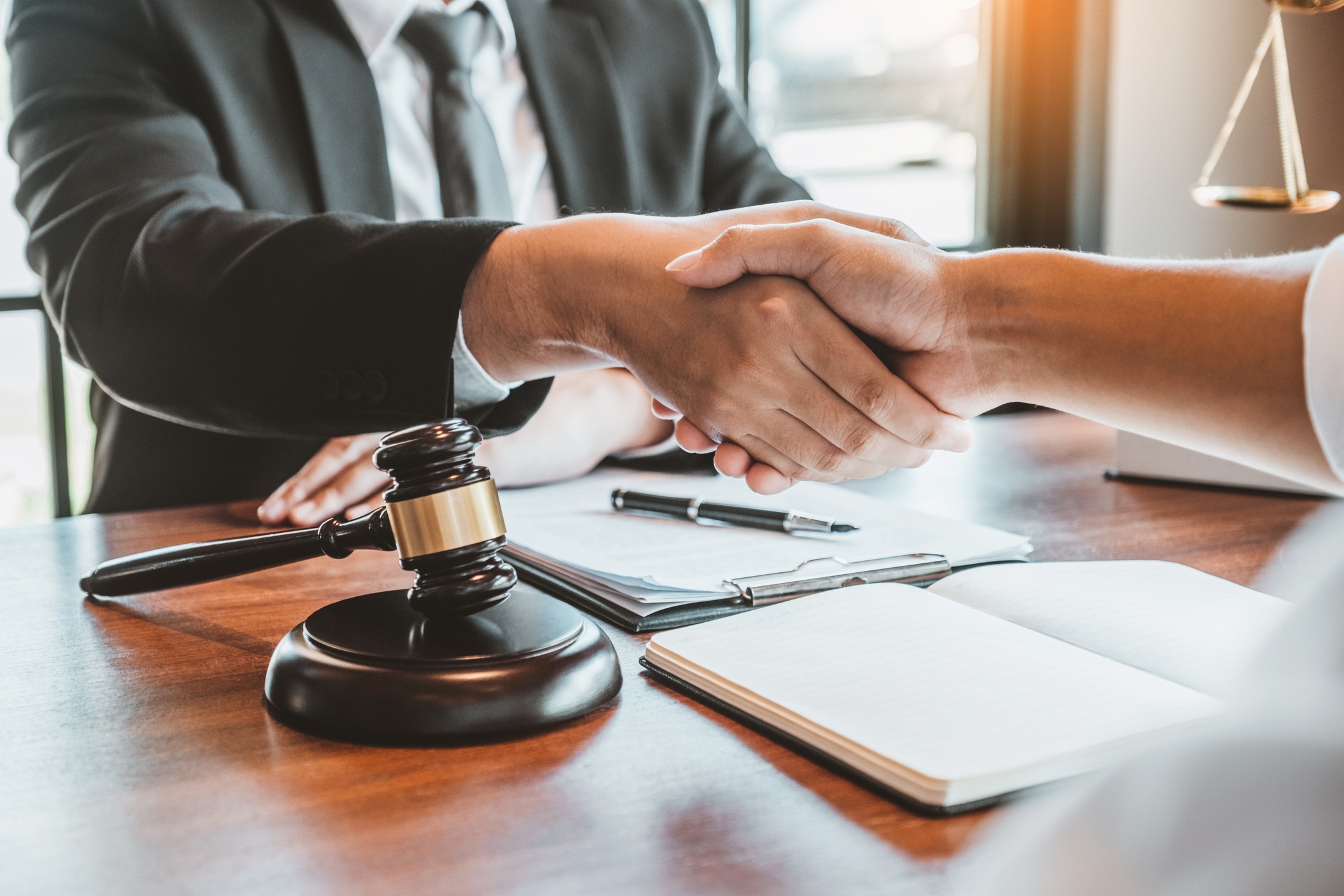Published: May 15, 2025
Last Updated: May 15, 2025

When you think about it, boundaries seem less important than ever in the modern world. People travel with ease, businesses operate all across the world, and criminals, regrettably, do the same. Dubai is at the centre of this interconnection as a significant global hub. This implies that illicit activity frequently doesn't neatly end at a national border either. This is where international legal cooperation, an intriguing and important field, enters the picture.
When Trouble Crosses Lines: Understanding Dubai's Cross-Border Challenges
When it comes to crime, Dubai naturally confronts some special difficulties because it is such a global melting pot, a location where people travel, work, and invest from all over the world.
When the Bad Guys Come Calling: Crimes Originating Elsewhere
Trouble can sometimes begin far away. We may witness clever schemes developed abroad that target local companies or people, or cyberattacks that are conducted halfway around the world to cause disruptions. Criminals can reach out from anywhere in the digital world since there are no boundaries.
When Local Issues Have Global Reach: Crimes Originating Here
Conversely, events that originate in Dubai can occasionally have an impact that extends well beyond our boundaries. Consider intricate financial transactions that may entail the transfer of illegal monies across international channels or cybercrimes that, regrettably, target victims in other nations.
The Tricky Business of Fugitives and Far-Flung Evidence
Then there's the human element. Sometimes, people who are wanted for crimes elsewhere might try to lay low here. And when something happens in Dubai, the clues and the people who know about it might be scattered all over the world. Imagine trying to piece together a puzzle when the pieces are in different countries!
Working Together: The Necessity of International Legal Cooperation
Therefore, how can one even start addressing this kind of border-hopping issue? The solution is straightforward, but putting it into practice is difficult: nations must cooperate. This is a matter of necessity, not merely friendliness.
The Big Swaps: Extradition and Mutual Legal Assistance
Consider extradition to be a sort of global "you're wanted!" system. Extradition is the process of bringing someone back to face prosecution if they attempt to evade justice in one country after committing a significant crime in another. When it comes to handling the intricacies of extradition proceedings,criminal lawyers in Dubaiare essential. Mutual Legal Assistance (MLA) comes next. MLA is the official method by which nations assist one another with these types of legal tasks, such as obtaining a witness statement from a foreign national or conducting a property search in another nation.
Sharing Secrets and Joining Forces: Information and Joint Efforts
It also involves information exchange, such as when intelligence services discuss ongoing investigations or possible threats with one another. Sometimes the issue is so large that nations must cooperate to conduct joint investigations, combining their resources and knowledge to solve a case.
Bringing People Home: Transferring Sentenced Individuals
Last but not least is the notion that, in many cases, it is preferable for everyone if a person convicted of a crime abroad is allowed to spend their time in their native country, where they can be surrounded by their loved ones and culture. That's what the agreements for the transfer of convicted persons are all about.
How Dubai Plays Its Part: The Legal Framework and Global Connections
So, how does Dubai, and the UAE as a whole, actually make all this international cooperation happen? They've built a solid framework and actively participate on the world stage.
The Rulebook and Global Memberships
Federal Law No. 39 of 2006 is a significant piece of legislation that establishes guidelines for how the United Arab Emirates responds to requests for international legal assistance. Additionally, Federal Decree-Law No. 38/2023, which was lately updated, clarified the extradition procedure even further. Additionally, joining large international agencies such as Interpol is akin to joining a worldwide police network.
Making Deals and Having a Go-To Person
In order to facilitate cooperation, the UAE has signed numerous specialized agreements with other nations, such as extradition and mutual legal assistance treaties, in addition to the major international organizations. Consider it analogous to having dedicated phone lines for particular partners. Additionally, a unique Central Authority serves as the primary point of contact for foreign legal requests to ensure that everything operates well.
Real-World Examples: When Cooperation Makes a Difference
You can see this cooperation in action all the time.
Sending Suspects Back and Helping with Investigations
Extradition occurs when someone who is wanted for a serious crime abroad is returned from Dubai. Innumerable cases occur behind the scenes where Dubai's legal staff assist other nations with witness interviews or evidence collection, and vice versa.
Fighting Global Crime Together
Dubai is also actively involved in tackling global issues like drug trafficking and human trafficking, working with international partners to disrupt these criminal networks. And when it comes to financial crime, the UAE's financial intelligence unit is constantly sharing information with its counterparts around the world to track down illicit funds.
Looking Ahead: The Ongoing Effort to Cooperate Better
Of course, getting different countries with different legal systems to work together perfectly isn't always easy. There are challenges like language barriers and just the sheer complexity of different legal processes. But the focus is always on getting better, and Al Adl Legal are at the forefront of managing these complexities, finding innovative solutions to facilitate international cooperation.
Making the Laws Stronger and Embracing Technology
This means constantly updating the laws to keep pace with new types of crime and making sure international agreements are in place. It also means figuring out how to cooperate effectively in the digital world, especially when it comes to things like cybercrime.
Building Trust and Training the Experts
In the end, it boils down to forging close ties between nations and ensuring that those employed by the legal system and law enforcement are properly trained in international cooperation protocols. It's about getting to know one another and cooperating to achieve a shared objective: making the world a safer place.
Therefore, even though there are certain significant obstacles associated with cross-border crime, Dubai's active participation in international legal cooperation demonstrates a genuine desire to address these problems head-on. Although the world is complicated, the more nations cooperate, the greater our chances of apprehending offenders wherever they may be.


